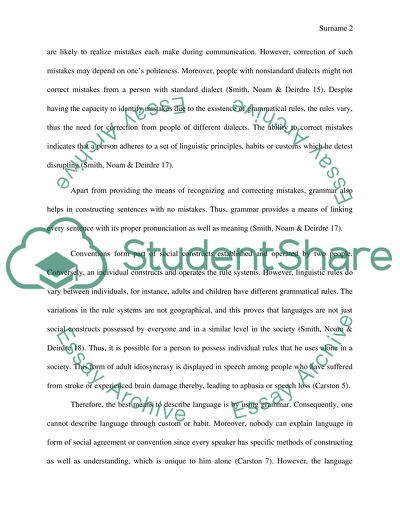What is a language Essay Example | Topics and Well Written Essays - 750 words. Retrieved from https://studentshare.org/journalism-communication/1477525-what-is-a-language
What Is a Language Essay Example | Topics and Well Written Essays - 750 Words. https://studentshare.org/journalism-communication/1477525-what-is-a-language.


